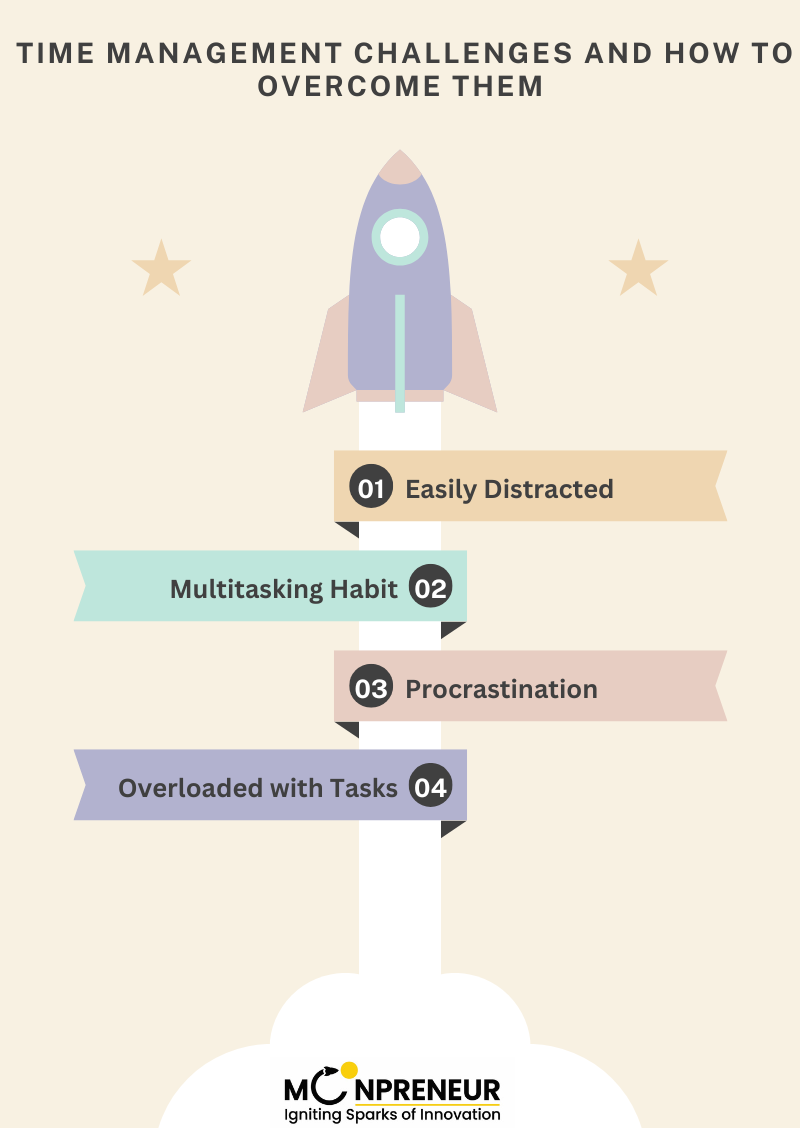Introduction to what exactly is time management?
Time management, the art of efficiently organizing and planning your tasks, offers a multitude of benefits. It allows you to work smarter, not harder, and achieve more in less time, even under tight deadlines and high pressures.

Why is time management important?
In today’s fast-paced world, balancing various tasks and responsibilities can feel overwhelming. Time management is the key to navigating this hectic lifestyle, providing a way to stay organized, reduce stress, and achieve both personal and professional goals.
Here’s a closer look at why time management is essential and how it can transform your life.
Recommended Reading: https://mp.moonpreneur.com/blog/role-of-robotics-in-work-life-balance/
1. Boosts Productivity
Effective time management allows you to prioritize tasks, ensuring that the most important things get done first. When you plan your day, you can set aside time for high-priority activities, minimizing the distractions that come with an unstructured schedule. The result? Higher productivity and more efficient use of your time.
2. Reduces Stress
When tasks pile up, stress often follows. However, a clear plan, courtesy of effective time management, can help you avoid this by breaking down tasks into manageable steps. This not only reduces the anxiety of constantly juggling priorities but also fosters a more focused, relaxed mindset.
3. Improves Decision-Making
With limited time, making quick, effective decisions becomes essential. Time management helps you assess tasks based on urgency and importance, allowing for better choices in less time. Instead of being reactive, you become proactive, making decisions that align with your goals and giving you a sense of empowerment and control.
4. Enhances Work-Life Balance
Time management is essential for balancing work and personal life. By allocating specific times for work, family, and relaxation, you can ensure each area of your life receives the attention it deserves. This balance leads to greater satisfaction and prevents burnout.
5. Helps in Goal Achievement
Time management can also improve goal-setting. When you dedicate specific blocks of time to tasks, you’re more likely to reach your milestones. Each small step you complete brings you closer to larger, long-term goals, creating a sense of accomplishment that fuels motivation and keeps you going.
6. Encourages Personal Growth
Good time management allows for self-reflection and skill development. By managing time efficiently, you can dedicate moments to learning new things, whether it’s a professional skill or a hobby. This creates room for continuous personal and professional growth.
Challenges of Time Management
| Internal Barriers | External Barriers |
|---|---|
| Lack of self-control | Heavy Workload |
| Procrastination | Job Constraints |
| Lack of motivation | Limited Corporate Resources |
| Anxiety | Frequent Distractions |
| People-pleasing | Inadequate Support Systems |
| Multitasking Habits | Unclear Goals and Expectations |

According to Statista:
91% say better time management will lead to reduced stress at work
90% say better time management will lead to increased productivity
9 Steps to Improve Time Management Skills at Work

1. Use Time Tracking Software
Tracking how you spend your time on tasks helps you identify areas for improvement and make better time-management decisions.
2. Try Time Management Techniques
Use methods like the Pomodoro Technique, Eisenhower Matrix, or Time Blocking to focus and structure your work more effectively.
3. Avoid Multitasking
Focus on one task at a time instead of juggling multiple things. This keeps your productivity high.
4. Limit Distractions
Control distractions like phone notifications or frequent emails. Set boundaries to stay focused on work.
5. Take Regular Breaks
Short breaks prevent burnout and keep you productive throughout the day. Avoid screens during breaks for proper mental rest.
6. Identify Your Productive Hours
Find out when you’re most energized and tackle your hardest tasks during those times.
7. Break Large Tasks Into Smaller Steps
Dividing big tasks into smaller steps makes them easier to manage and helps you progress steadily.
8. Delegate Tasks
Share tasks with others when possible so you can focus on priorities and use everyone’s strengths.
9. Learn to Say “No”
Politely decline extra work if it will overburden you. Offer alternatives, and communicate your workload clearly.

Tips for Better Time Management
1. Set Clear Goals: Define what you want to accomplish and break it into smaller tasks.
2.Prioritize Tasks: Focus on the most important tasks first to maximize productivity.
3. Use a Planner or Calendar: Keep track of deadlines and commitments.
4. Avoid Multitasking: Concentrate on one task at a time to increase efficiency.
5. Review and Adjust: Regularly assess your progress and adjust as needed.
Recommended Reading: https://mp.moonpreneur.com/blog/sleep-meditation-for-kids/
Conclusion
Time management is not just about getting things done; it’s a tool to lead a balanced, productive, and fulfilling life. By making small changes in how you plan and prioritize, you can reduce stress, achieve more, and find satisfaction in every area of life. Embrace time management to take control of your day and, ultimately, your future.
Moonpreneur is on a mission to disrupt traditional education and future-proof the next generation with holistic learning solutions. Its Innovator Program is building tomorrow’s workforce by training students in AI/ML, Robotics, Coding, IoT, and Apps, enabling entrepreneurship through experiential learning.


























You should also provide actionable steps like identifying productive hours and using time management techniques. These are incredibly useful for maintaining a better work-life balance.
I feel it could dive deeper into addressing the psychological barriers like procrastination and self-doubt. Exploring these aspects in detail would make the content even more impactful and practical for readers who struggle with intrinsic challenges.